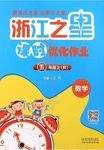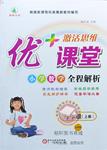题目内容
完形填空。
1 the first time, Zhang Shengyu, a student at Laiyang Middle School in Shandong, didn’t ask her mother to buy her a new schoolbag or any new pens for the beginning of the school term. “My old schoolbag can still be used, so there is no 2 to buy a new one,” Zhang said. “I’ve decided to be thrifty (节约的) from now on. ”
As the center of the 3 attention, many of the one-child generation do not know about the hardships of life. They sometimes have no idea of the value(价值) of money. Many students would 4 away pens and erasers that haven’t been used up and buy new ones. Some like to compete with each other to see whose clothes and 5 are more expensive.
The Ministry of Education put a notice on its website on Jan 20. It called on students to have good habits such as diligence and thrift, to stop wasting food and to pay 6 attention to famous brands. (牌子)
Many schools consider 7 the students the value of money and encourage their students to be 8 .
Students at No 44 Middle School of Shijiazhuang, Hebei planted many fruit trees in their campus. By taking care of the trees, the students learned 9 to cherish(珍惜) things.
At Tie Yi Middle School in Xi’an, students organized a group to collect used pen refills (替芯) and use them for crafts (手工作品). “What we students do are small things, 10 I think with everyone’s work, we can make a difference,” said Li Dongdong, 16, a student at the school.
1. A.For B.In C.On D.Of
2. A.reasons B.need C.way D.use
3. A.mother’s B.father’s C.parent’s D.family’s
4. A.give B.throw C.put D.take
5. A.houses B.cars C.bikes D.school thing
6. A.some B.less C.more D.fewer
7. A.teaching B.knowing C.learning D.showing
8. A.active B.thrifty C.honest D.careful
9. A.how B.where C.when D.why
10. A.so B.but C.and D.however
1.A
2.B
3.D
4.B
5.D
6.B
7.A
8.B
9.A
10.B
【解析】
试题分析:这篇短文主要描述了中国的独生子女问题。由于是家庭的中心,体会不到生活的艰辛,很多独生子女不知道节约。因此学校开展了一系列的活动,教育孩子们认识金钱的价值,懂得节约,并取得了不错的成果。
1.介词辨析。For为了,至于;In在里面;On在上面;Of关于,……的。联系下文,可知选A,for the first time 副词,第一次。
2.联系上文,他的书包还能用,可知没有必要买新的,故选B,必要。
3.联系下文描述,可知孩子是父母的注意的中心,故选D,父母的。
4.联系上文描述,可知此处指的是孩子们会扔掉没有用完的笔或者橡皮,再买新的。故选B,扔。
5.联系上文,可知他们攀比谁的衣服和学习用品更昂贵,故选D,学习用品。
6.词义辨析。A.一些;B.更少的;C.更多的;D.更少的。结合语境可知是让孩子们投入更多的注意力,故选B。
7.词义辨析。A. 教育;B.知道;C. 学会;D.展示。联系下文,可知许多学校考虑教育学生金钱的价值,故选A。
8.联系上文可知这是为了鼓励孩子们更加节俭,故选B,节约的。
9.词义辨析。A.怎样;B.在哪儿;C.什么时候;D.为什么;联系上下文,可知句意为:学生们学会了如何珍惜东西。故选A。
10.连词辨析。A.因此;B.但是;C.和,并且;D.然而,可是。句意:我们学生做的是一些小事,但是我认为随着每个人的努力,我们会做出改变。联系上下文可知前后是转折关系,however用作连词,后面需用逗号隔开,表示转折的意味不如but,故选B。
考点:关于独生子女问题的记述文
点评:这篇短文内容比较简单,理解不难。各小题与上下文联系比较紧密,答题中一定要注意联系上下文。答完后多读几遍,看看是否符合逻辑,适当修改。个别小题可以当做单独的词义辨析题来做,先区分词义,结合语境选出最能使语句通顺的答案。

 浙江之星课时优化作业系列答案
浙江之星课时优化作业系列答案 激活思维优加课堂系列答案
激活思维优加课堂系列答案完形填空(1分X10=10分)
Three small fish lived in the sea. When they were very young, their parents died. They had to 1_______ each other day after day. Finally, they grew up and 2_________ to swim deeper and further.
One morning, the three fish were 3_________ to a shallow(浅滩) water by a big wave. A small boat was taken there, too. It was hard for the fish to go back to the sea because the boat was right in front of them. The largest fish realized that they were 4________ and said they had to find a way to leave there as fast as possible. The second largest fish 5________ with his elder brother, but the youngest one did not. He said that there was much 6_________ for their activities, so he would not worry at all and still swam around 7_________. At last, the largest fish returned to the 8_______ by jumping over the lowest part of the boat. The second largest fish also succeeded in 9_________ his elder brother in the other side of water. But the youngest one didn’t follow them and still swam joyfully.
Two hours later, when the 10________ rose up, the water in the small shallow corner dried up. The fish who did not try to return to the sea died of lack(缺少) of water.
| 【小题1】 |
|
| 【小题2】 |
|
| 【小题3】 |
|
| 【小题4】 |
|
| 【小题5】 |
|
| 【小题6】 |
|
| 【小题7】 |
|
| 【小题8】 |
|
| 【小题9】 |
|
| 【小题10】 |
|
完形填空。
1 the first time, Zhang Shengyu, a student at Laiyang Middle School in Shandong, didn’t ask her mother to buy her a new schoolbag or any new pens for the beginning of the school term. “My old schoolbag can still be used, so there is no 2 to buy a new one,” Zhang said. “I’ve decided to be thrifty (节约的) from now on. ”
As the center of the 3 attention, many of the one-child generation do not know about the hardships of life. They sometimes have no idea of the value(价值) of money. Many students would 4 away pens and erasers that haven’t been used up and buy new ones. Some like to compete with each other to see whose clothes and 5 are more expensive.
The Ministry of Education put a notice on its website on Jan 20. It called on students to have good habits such as diligence and thrift, to stop wasting food and to pay 6 attention to famous brands. (牌子)
Many schools consider 7 the students the value of money and encourage their students to be 8 .
Students at No 44 Middle School of Shijiazhuang, Hebei planted many fruit trees in their campus. By taking care of the trees, the students learned 9 to cherish(珍惜) things.
At Tie Yi Middle School in Xi’an, students organized a group to collect used pen refills (替芯) and use them for crafts (手工作品). “What we students do are small things, 10 I think with everyone’s work, we can make a difference,” said Li Dongdong, 16, a student at the school.
| 【小题1】 |
|
| 【小题2】 |
|
| 【小题3】 |
|
| 【小题4】 |
|
| 【小题5】 |
|
| 【小题6】 |
|
| 【小题7】 |
|
| 【小题8】 |
|
| 【小题9】 |
|
| 【小题10】 |
|
完形填空
The 1 in Britain is very different from our Chinese food. For example, they eat a lot of potatoes. They like to eat 2 every day. They eat bread 3 breakfasts and usually for one other meal. They eat their bread with butter, 4 cheese or jam(果酱). Cheese and butter are made from 5 .They drink a lot of milk, too. They drink the milk cold or 6 _, and they put it in their tea. They put sugar in their 7 _, too. They are the world’s biggest tea 8 . They don’t eat much rice. And they like meat or fish with 9 and other vegetables. They serve all these together. After the main meal they always have 10 sweet. They call this dessert. They don’t have dumplings in Beijing.
|
1. |
|
|
2. |
|
|
3. |
|
|
4. |
|
|
5. |
|
|
6. |
|
|
7. |
|
|
8. |
|
|
9. |
|
|
10. |
|
完形填空
The 1 in Britain is very different from our Chinese food. For example, they eat a lot of potatoes. They like to eat 2 every day. They eat bread 3 breakfasts and usually for one other meal. They eat their bread with butter, 4 cheese or jam(果酱). Cheese and butter are made from 5 .They drink a lot of milk, too. They drink the milk cold or 6 _, and they put it in their tea. They put sugar in their 7 _, too. They are the world’s biggest tea 8 . They don’t eat much rice. And they like meat or fish with 9 and other vegetables. They serve all these together. After the main meal they always have 10 sweet. They call this dessert. They don’t have dumplings in Beijing.
|
1. |
|
|
2. |
|
|
3. |
|
|
4. |
|
|
5. |
|
|
6. |
|
|
7. |
|
|
8. |
|
|
9. |
|
|
10. |
|